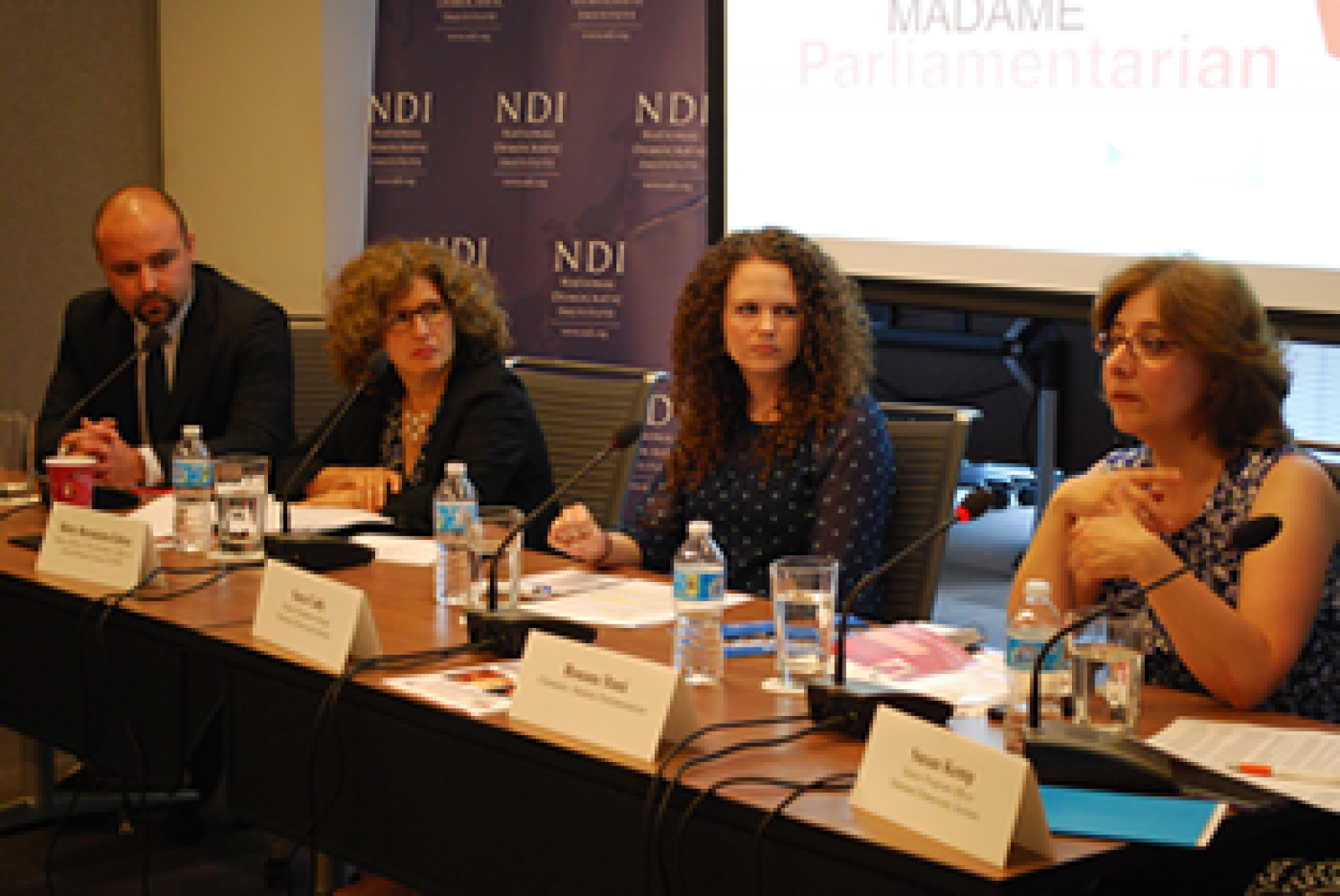
SHARE
Though half of the world’s population, women continue to be underrepresented at all levels of government as voters, party leaders and elected officials. Just over 20 percent of parliamentarians worldwide are women.
In the Arab world, that number is about 16 percent, and it’s lower still in some countries. In Lebanon, for example, one of the earliest places in the region where women gained the right to vote, in 1952, just four of the 128 parliamentarians are women.
The political challenges and barriers that Lebanese women face are outlined in a new documentary film, Madame Parliamentarian, that highlights the struggles of those trying to increase women’s presence in government. Rouane Itani, the Lebanese-American filmmaker, emphasized her desire to “break the stereotypes and give a face to the women in Lebanon.”
Itani was at NDI on June 18 as part of a panel discussion on barriers to and strategies for increasing women’s political participation in Lebanon and Yemen. She was joined by Betty Bernstein-Zabza, senior policy advisor at the Office of Global Women’s Issues at the State Department. Other panelists were Sara Cady and Chris Miller, both members of NDI’s Middle East and North Africa team, who discussed the Institute’s work with women in Lebanon and Yemen. The panel, moderated by Susan Kemp, of NDI’s Women’s Political Participation team, also covered such topics as apathetic youth and changing the perspectives of men on women candidates.
Lack of funding and access to media impede the few female candidates from gaining ground in Lebanon, Itani said. The country's electoral process creates challenges because the parliament must adhere to a religious quota, which reserves a certain number of seats for different religious groups. Moreover, political parties are the gateway to obtaining a seat but do not openly accept women as candidates. If women run as independents, it is difficult for them to gain attention, raise funds and get voter support.
These concerns and more were echoed by Bernstein-Zabza, who outlined the goals of the Office of Global Women’s Issues. These include a focus on the welfare of adolescent girls, an end to gender-based violence and an increase in the economic participation of women. Bernstein-Zabza emphasized the harmful effects of young girls dropping out of school as well as the violence women fear, even in public spaces. Both are compelling factors in the loss of potential women candidates at both the local and national levels of government.
NDI supports the increased and meaningful participation of women in politics throughout its programs globally. The Institute has provided technical assistance to such groups as “Women in Parliament,” a coalition of organizations and individuals seeking to create more opportunities for women in Lebanon, and other local organizations to promote women’s presence and participation globally.
In March, NDI held a Women’s Leadership Academy in Yemen for 150 women candidates and campaign managers. Participants were prepped on effective ways to run campaigns, win votes and network within their communities. Part of a broader effort to prepare women to run in the next election, NDI is also working directly with political parties as Yemen plans to require a 30 percent gender quota in parliament.
Watch the panel discussion with Rouane Itani below.
Published July 1, 2014


